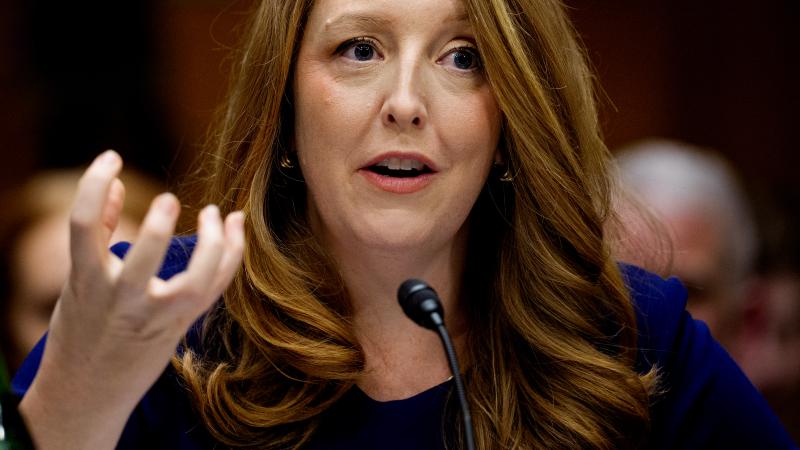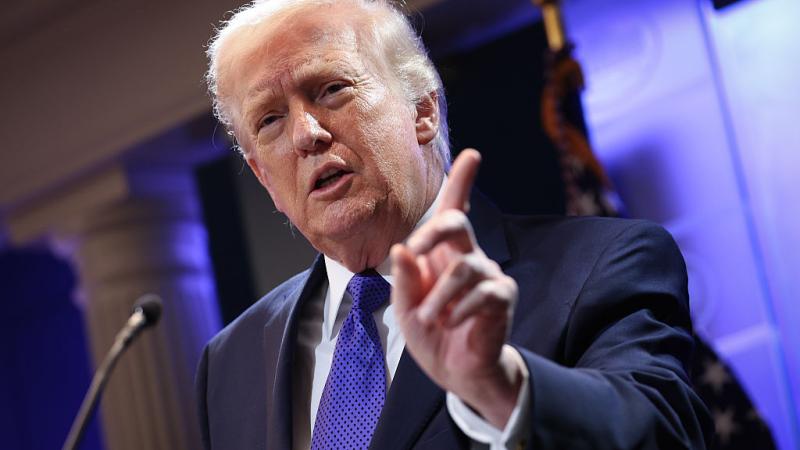GOP county clerks assure Michigan voters of election integrity, safeguards
Unlike during the last presidential election, most ballot drop boxes in Michigan must now be monitored by 24-hour video surveillance, and ballot extraction must occur regularly by sworn election officials, with both the time of pick up and individuals involved placed on record.
Republican local election officials and clerks from across Michigan reassured voters that the electoral process in Michigan is safe, secure, and transparent on a virtual press call Tuesday.
In the briefing hosted by the nonpartisan coalition Michigan Partnership for Secure Elections, county clerks outlined the extensive steps taken to secure local elections, including poll worker training, public inspections of voting machines, public audits and election day oversight.
“It’s important for voters to know that our elections have many built-in processes for verification and review before, during and after votes are cast,” Kent County Clerk Lisa Posthumus Lyons said. “Voters can trust that their ballots are protected, and that election results are accurate. We work hard to make that happen – and so do voters themselves.”
The clerks went over a variety of election security measures, some of which have been enhanced since the 2020 General Election.
Unlike during the last presidential election, most ballot drop boxes in Michigan must now be monitored by 24-hour video surveillance, and ballot extraction must occur regularly by sworn election officials, with both the time of pick up and individuals involved placed on record.
Regarding voter eligibility confirmation, “our process, whether it’s absentee, early voting, or election day voting, consists of so many verification steps,” Ottawa County Clerk Justin Roebuck said. He referenced signature verification requirements for absentee ballots, a live database monitoring ballots cast throughout the early voting period, and ID verification measures for in-person voters on Election Day as safeguards to preventing ineligible persons from voting.
“With non-United States citizens on the voter roles–this is an extraordinarily rare circumstance, mainly because of our Real ID Act,” Roebuck said. “If you’re a noncitizen getting a driver’s license or state ID in Michigan, you’re kept in a separate database that’s separate from the automatic voter registration file. In addition to that, we have a federal ID requirement that requires the last four [digits] of your social [security number] on that voter registration application.”
As additional security measures, after polls close and clerks finish counting the ballots, the vote count is then verified by the Board of Canvassers, and Michigan election law now requires public, post-election audits to be conducted to confirm the accuracy of the election results.
The clerks also addressed a recent change in state election law, where the requirements for conducting recounts were modified, requiring the Board of Canvassers to refer any allegations of election fraud to the relevant county prosecutor for review, rather than launching a recount themselves.
“There’s a little bit of misunderstanding regarding that legislation,” Roebuck explained. “Ultimately, the authority was never in the law directly for the Board of Canvassers to conduct investigations–that has never been the role of the Board of Canvassers. This statute really only clarifies that and codifies the long-standing practice we’ve always had.”
The clerks also said that longer wait periods while ballots are counted should not alarm voters as to the fairness of election results.
“Counting votes does take time, and we want to ensure that every valid vote is counted on election night,” Livingston County Clerk Betsy Hundley said. “So please be patient with us–no matter how long it takes, it’s not a delay in the process, it is simply the process working as it is set out to work.”
















